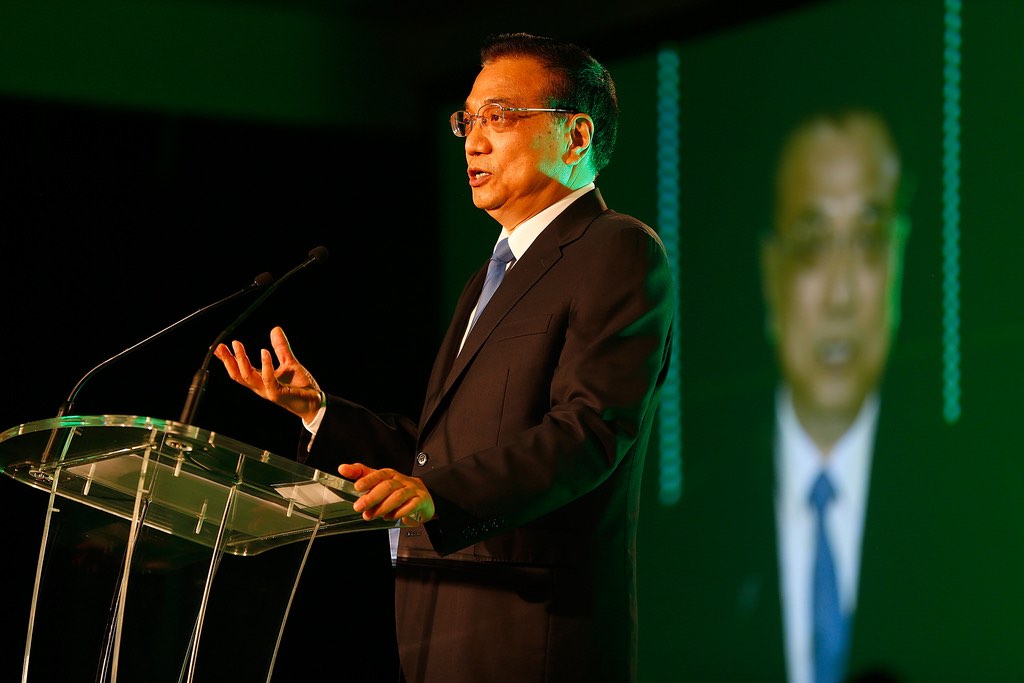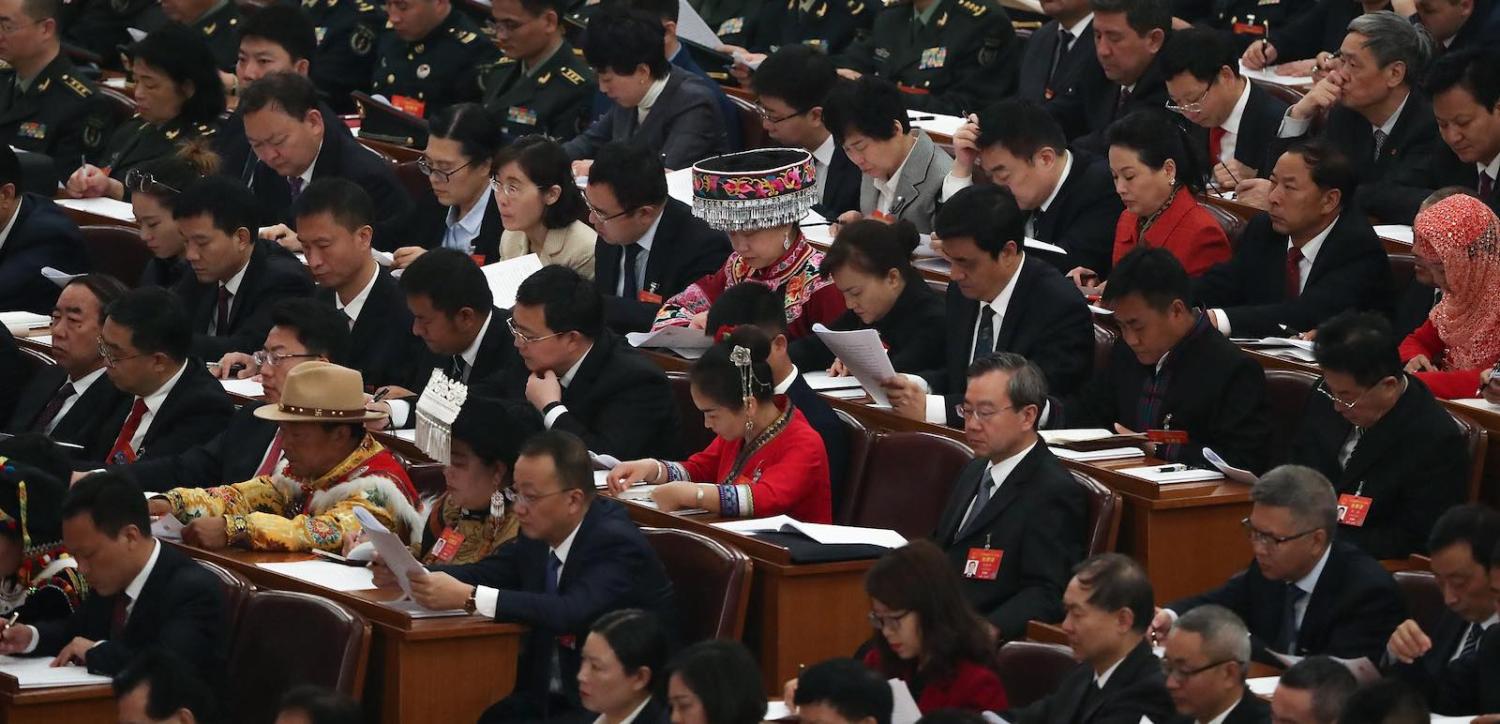In Beijing, the Two Sessions has begun: a fortnight of meetings involving thousands of delegates of the National People’s Congress and the Chinese People’s Political Consultative Conference.
China wants to tell the world about itself, which is this: we’re all-conquering, globe-striding, dark-side-of-the-moon-landing, super nice polite guys with gangsta attitude. And a very big dictionary.
It is likely many attending will have opinions about President Xi Jinping’s all-consuming leadership, and concerns about China’s slowing economy, but obviously, no one’s going to hear about them, inside or outside the Great Hall of the People. Instead we have “The Two Sessions”, a – nominally – English-language rap about China’s general excellence, released this week on Xinhua’s website.
I’m aware there are hundreds more important issues in China today. But it would be a disservice to Interpreter readers to skip over this singular creative achievement, a thing creator Su Han calls a “compliment song”. It might be the worst and the greatest music video ever made. It’s a propaganda apotheosis. Mesmeric, eye-watering, comprehensive, catchy: it’s a four-minute 48-second word salad.
China hawks might be comforted by the lyrics: “never gonna be an earth invader/force it into hunt in Cretaceous”. Or they may not. I had to look up “nephrolithiasis”, which, odds-on, has not before this entered any rap lexicon. (Why not? Look it up.)
Overall the song and its dizzying video conveys a lot that is quite separate from the literal meaning of the lyrics. Do watch it for insight into what contemporary China wants to tell the world about itself, which is this: we’re all-conquering, globe-striding, dark-side-of-the-moon-landing, super nice polite guys with gangsta attitude. And a very big dictionary.
Read Anthony Tao’s very funny review on SupChina too. All together now: “We’ve got two sessions, w-we’ve got two sessions/For the fragrance we’re blessing, to the world we show our affection.” It also features cloned macaques.
On the numbers
For the substance amidst the pre-set spectacle of furious agreement, China’s 2-i-c, Premier Li Keqiang, flagged a downgrade in the annual growth target to 6% as he released this year’s Government Work Document. There was a plan to cut taxes and ease burdens on business. The New York Times noted something of a return to market rhetoric (laying off the recent lashings of Marxism which were frightening entrepreneurs) – a point called for by eminent Chinese economist Xiang Songzuo in an immediately-censored speech late last year.
Policymakers resisted more short-term strong stimulus policies for fear of “undermining long-term development and generating new risks”, according to Premier Li. Spending on science and technology goes up 13.4% to US$52.9 billion, but there was a polite omission of the “Made in China 2025” policy that has so troubled US policymakers in recent years.
Projected defence spending will increase by slightly more than GDP, up 7.5% to $175.98 billion. (For comparison, the US is boosting spending to $686 billion this year.) Some analysts think that China’s headline figure is a soothing semaphore to neighbours uneasy about its military build-up, given it is a bit lower than last year’s 8.1% number.
But it’s been pointed out that the astronomically expensive aircraft carrier program is largely off the books: construction costs are not included, according to the SCMP, and neither were other big ticket items like the lavish military parades scheduled for the 70th anniversary of the PLA in October.

The geopolitics of 5G
Meanwhile, the Meng Wanzhou saga drags on with the Chinese Huawei executive now suing the Canadian government for alleged improper process in her extradition request. Canadians Michael Kovrig and Michael Spavor, revenge-arrested and unafforded the same privilege of judicial review, languish in Chinese jails. The blatant double-standard is galling to many observers: a potent illustration of the incompatibility of values, of process, of justice systems that creates systemic asymmetry in aspects of China-West dealings.
For insight into the 5G battleground that is the stage for the Meng drama, a recent report, “The Geopolitics of 5G” presents in usefully plain language the implications of a split global 5G system: one American-led, one Chinese-led. If the US is successful in pushing Huawei out of its friends and allies’ networks, the authors conclude China will have first-mover advantage in 5G, which may translate to geopolitical advantage “in Africa, Latin America and the Middle East”, places where Belt and Road financing will provide extra incentive for adopting Huawei tech.
Which makes the US look damned either way. But don’t write the Yanks off just yet. The authors figure the US retains an innovation advantage, as well as an edge in semiconductors and other underlying technology. The result of a US/China system split could lead to interoperability issues; “but more likely would result in lower economies of scale and higher transaction costs with second-order effects for the cost of both user and infrastructure equipment.”
In other words, you’ll pay more for the privilege of a network secured against Chinese intrusions. Then you’ll only have to worry about Google, Facebook and the NSA.

